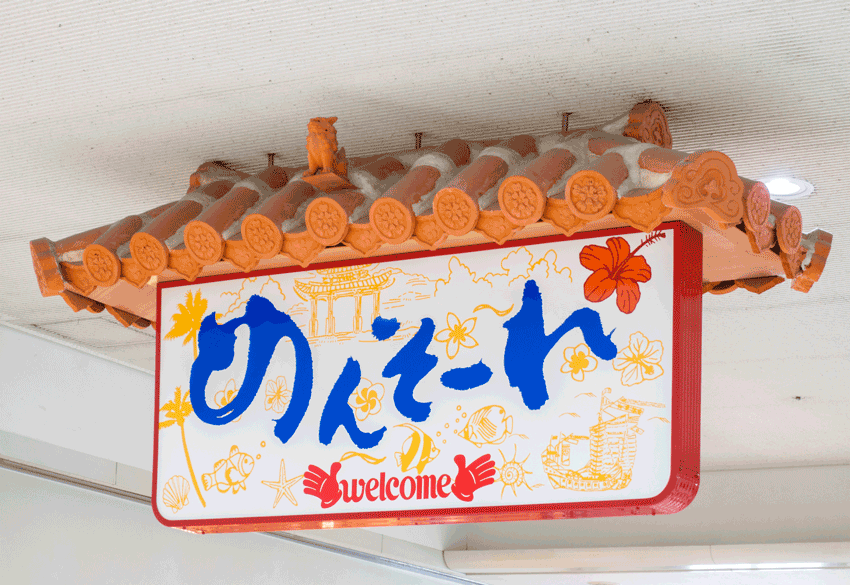Okinawa, the southernmost island of Japan, has a unique dialect. The dialect of Okinawa, or Okinawan dialect, is called "Uchinaaguchi."
You may have heard famous Uchinaaguchi such as "haisai," "mensore," "chibariyo," and so on.
This time, as a resident of Okinawa, I would like to introduce the meaning of Uchinaaguchi that you often hear and can use when you visit Okinawa on a trip.
However, Okinawa Prefecture is made up of many islands. Even the Okinawan dialect is spoken in a completely different way on the main island of Okinawa, Miyako Island, and the Yaeyama Islands.
When you visit Okinawa, learn and enjoy the Uchinaaguchi spoken in each area!
- "Hello" in Okinawan dialect
- "Welcome" in Okinawan dialect
- "Thank you" in Okinawan dialect
- "Keep it up" in Okinawan dialect
- "North," "south," "east," and "west" in Okinawan dialect
- Let's enjoy your trip to Okinawa more by mastering the Okinawan dialect!
"Hello" in Okinawan dialect
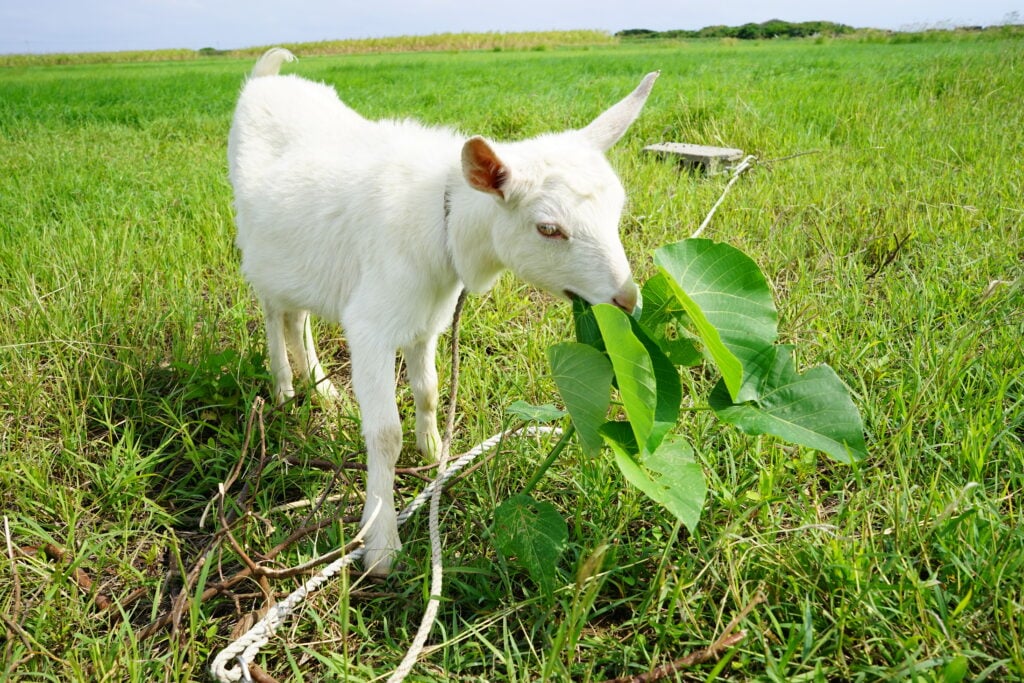
In Okinawa, people say "haisai" when greeting someone, just like "konnichiwa" in mainland Japan.
Unlike "konnichiwa" which roughly means "good day" in English, "haisai" can stand in for ‘good morning,’ ‘good evening’ and all other greetings, so it can be freely used any time of the day.
Note that "Haisai" is used by men, while "haitai" is used by women. Make sure not to make a mistake when greeting someone. "Haitai" gives a softer impression.
There is a song often played in Okinawa called "Haisai Ojisan". In this song, a boy greets his neighbor's uncle with "Haisai! Ojisan" ("ojisan" means "uncle") and talks to him.
You may have heard this song before, as it is famous as the cheering song for the Okinawan team in the high school baseball games held every year at the Hanshin Koshien Stadium.
If you are traveling in Okinawa and a local person says "haisai" to you, try replying "haisai" or "haitai", depending on your own gender.
By the way, in the Yaeyama Islands where Ishigaki and Iriomote Islands are located, people say "kuyon nara" when greeting each other.
Also, on Miyakojima Island, there is no word that correlates to "konnichiwa," and the closest equivalent to a simple greeting is said to be "haii."
Depending on which area of Okinawa you visit, the expression of "hello / konnichiwa" in Okinawan dialect will change, so you should try to adapt your greeting to the local people.
"Welcome" in Okinawan dialect
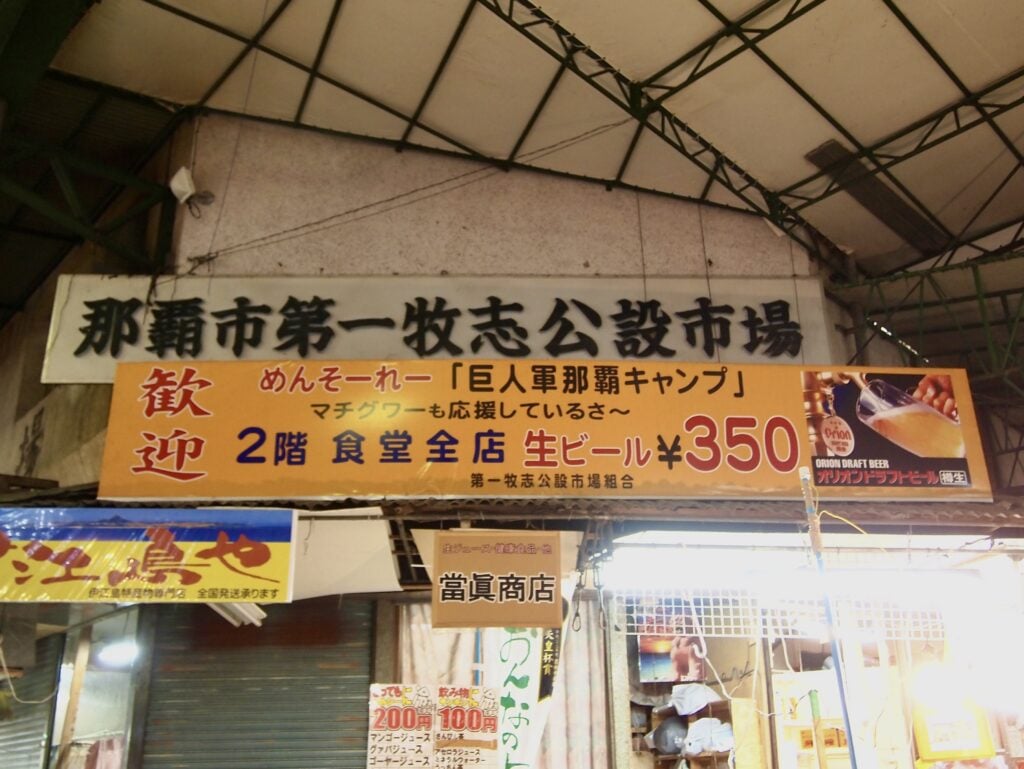
The first "Uchinaaguchi" you will probably see when you land at Naha Airport is "mensoore". (めんそーれ in hiragana)
"Mensoore" is one of the most famous words in the Okinawan dialect, meaning ‘welcome’ or the equivalent of "irasshaimase" (the common greeting said when you enter an establishment).
If you walk around sightseeing spots in Okinawa, you are likely to see it on store signs and the like.
In the Yaeyama Islands where Ishigaki and Iriomote Islands are located, "oori-toori" means "welcome." When you arrive at Ishigaki Airport, you will be greeted by a sign that says "oori-toori". (おーりとーり in hiragana)
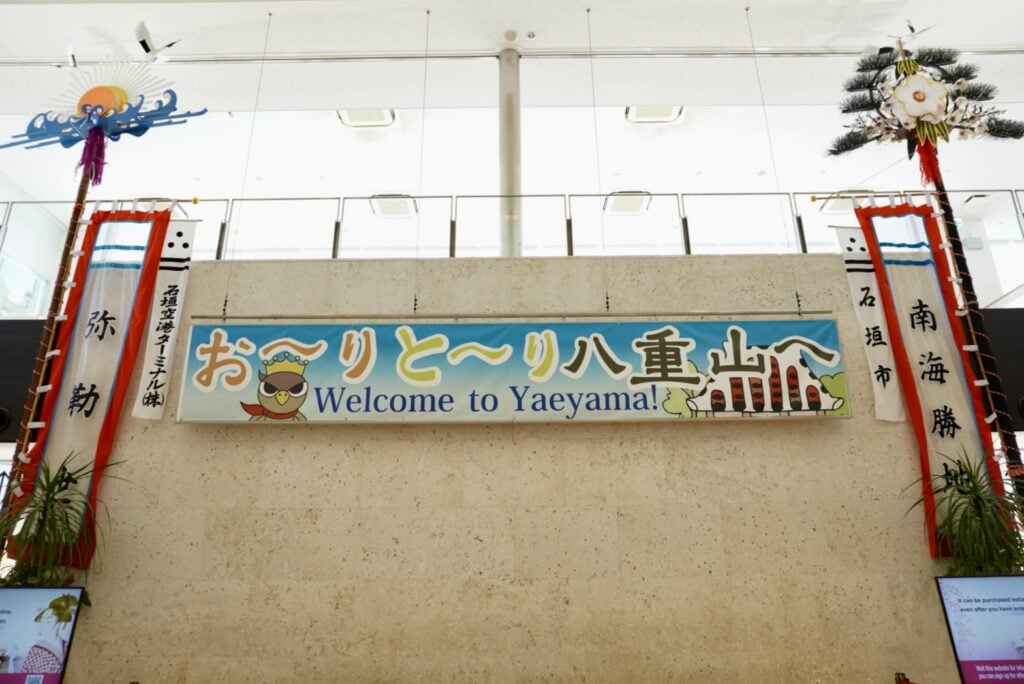
"Welcome" or ‘Irasshaimase’ in the Miyako Island dialect is "Nmyaachi."
Words beginning with "n" are generally uncommon in Japanese and are difficult to pronounce, but they are common on Miyako Island. It is unique and interesting!
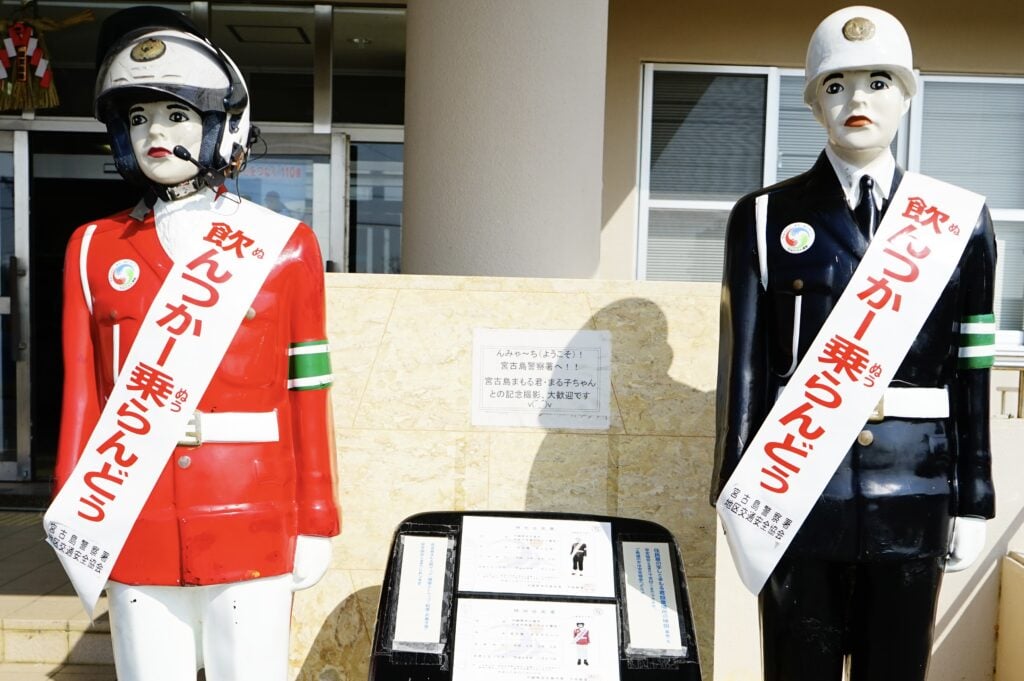
"Thank you" in Okinawan dialect
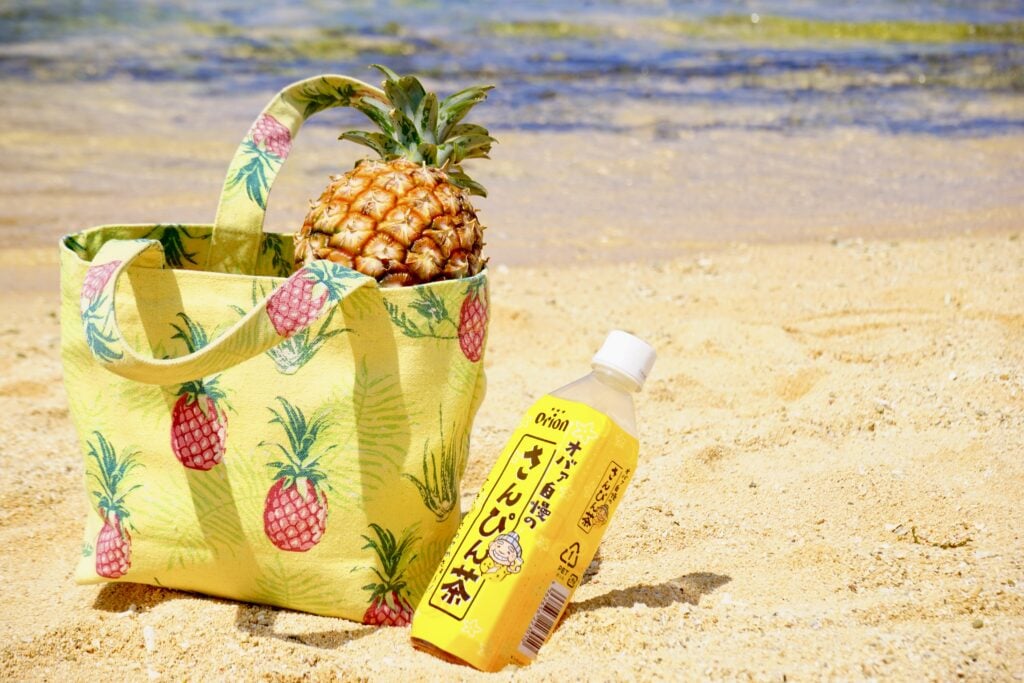
"Thank you" in the Okinawan dialect also bears no resemblance to the Japanese spoken outside Okinawa.
On the main island of Okinawa, "nifeedeebiru" means "thank you."
If you do not know the meaning of the word "nifeedeebiru," you will not be able to accept the person's expression of gratitude. It is one of the words you should learn.
In the Yaeyama Islands where Ishigaki and Iriomote Islands are located, it is "miifuayu", and in Miyako Island, it is "tandigaa tandii".
The words are not at all similar within Okinawa Prefecture, the main island of Okinawa, the Yaeyama Islands, and Miyako Island, but they all mean "thank you."
Since "thank you" is a word that is used frequently, you may enjoy your trip to Okinawa more if you learn it beforehand.
"Keep it up" in Okinawan dialect
Another commonly heard Uchinaaguchi is "chibariyo", which means "keep it up" ("ganbare" in mainland Japanese).
When you cheer somebody in Okinawa, people would useualy say "chibariyo!" You may have seen "Chibariyo Okinawa!" written on the banner when cheering for sports etc.
In Yaeyama Islands, they say "gibariyo", which is similar to "chibariyo".
But on Miyako Island, they say "waidoo", which again is not similar. It is interesting to see such a difference in the way of saying things even though they are in the same prefecture!
"North," "south," "east," and "west" in Okinawan dialect
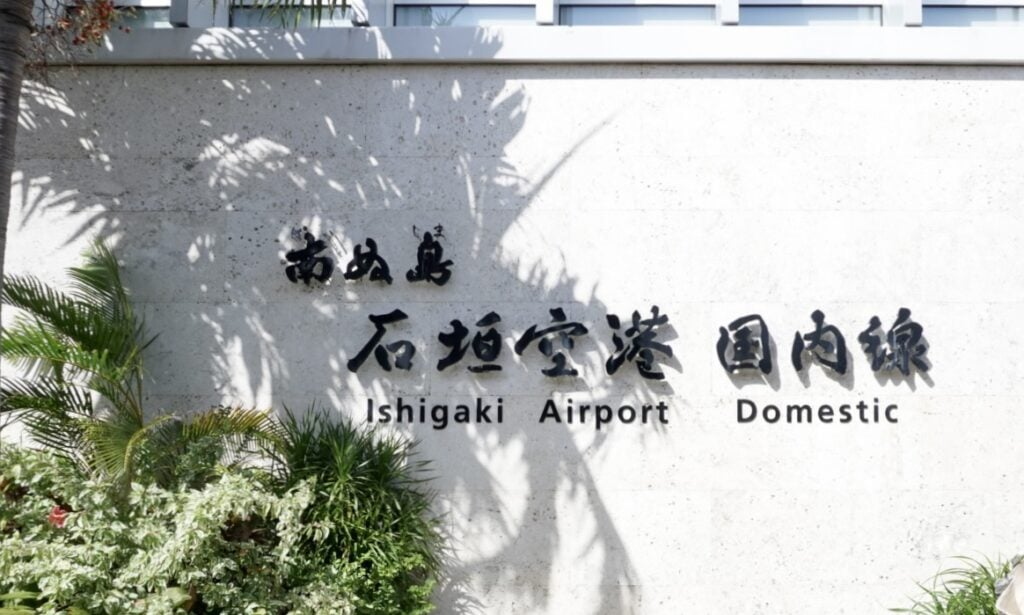
Finally, the way of saying "north" "south" "east" "west" also has a unique dialect in Okinawa.
Although it is not used in everyday life today, you may have heard some of these words before, as they have remnants in place names and words.
<North, south, east, west in Okinawan dialect>
North: Nishi
South: Hai / Pai / Feh
East: Agari
West: Iri
East and west are based on the movement of the sun, which rises in the east and enters the west, and are said to have become "agari" ("go up" in English) and "iri" ("go in" in English). It is easy to remember.
In Okinawa, there are place names and surnames that reflect these remnants of the dialect, with place names such as "Agariye" (東江), and "Iriomotejima" in the Yaeyama Islands.
The airport on Ishigaki Island is also called "Painujima Ishigaki Airport", which is also a remnant of the dialect.
In the Yaeyama dialect, the southern island is called "Painushima," the Southern Cross is called "Haimurubushi," and there is a resort hotel called "Haimurubushi" on Kohama Island in the Yaeyama Islands, because the reading of "south" is "hai / pai"!
Among the dialects of Okinawa's cardinal directions, the most complicated is north.
In the Okinawan dialect, "north" is called "nishi."
In mainland Japan, "nishi" means "west", therefore this causes a great deal of confusion among those who know Japanese.
There is a beach called "Nishi beach" on Hateruma Island in the Yaeyama Islands, but Nishi beach is located on the north side of Hateruma Island.
You need to be careful not to go "west" by mistake.
Although the name for the cardinal directions in the Okinawan dialect may not seem very familiar, it is interesting to pay attention and listen to it, as you may m unexpectedly use or hear it unintentionally when you visit Okinawa.
Let's enjoy your trip to Okinawa more by mastering the Okinawan dialect!
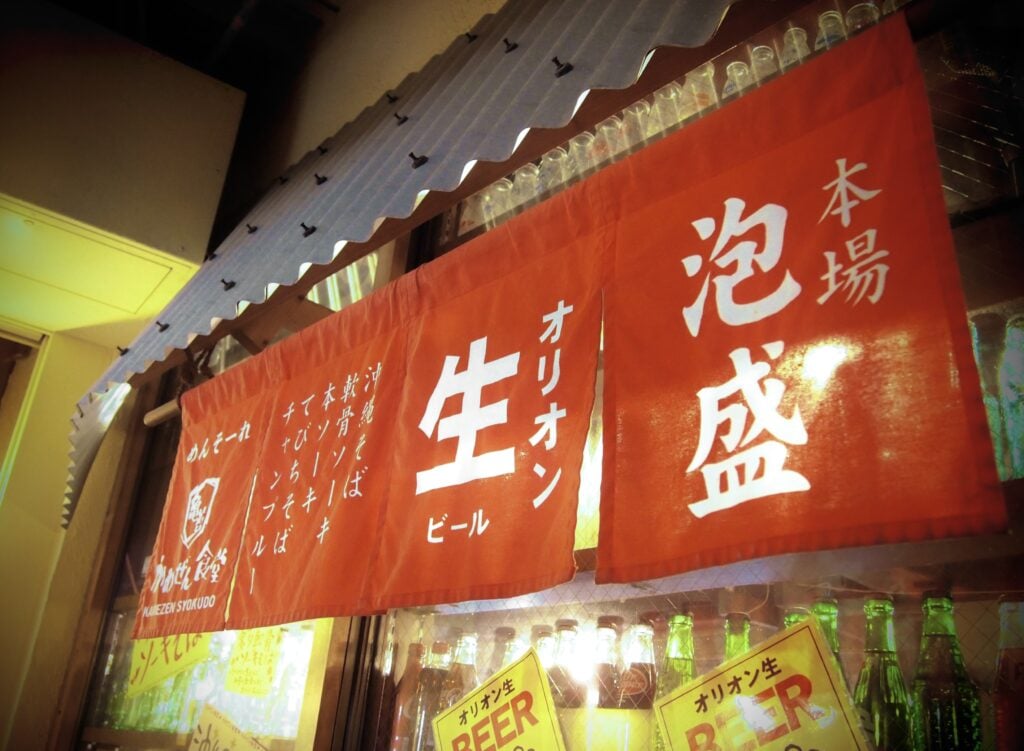
As you can see, the Okinawan dialect "Uchinaaguchi" is a dialect with many unique phrases that are difficult even for mainland Japanese people.
Because of Okinawa's unique culture and history, most of the dialect words are completely unfamiliar to us, just like a foreign language, and there are many words that are being lost.
However, because it is a unique language, understanding its meaning will make your time in Okinawa more enjoyable and bring you closer to the locals.
It is good to look for Okinawan words that you know, and it is also recommended to look up the meanings of Okinawan words that you hear for the first time.
When you visit Okinawa, please take an interest in Okinawan dialect "Uchinaaguchi"!

